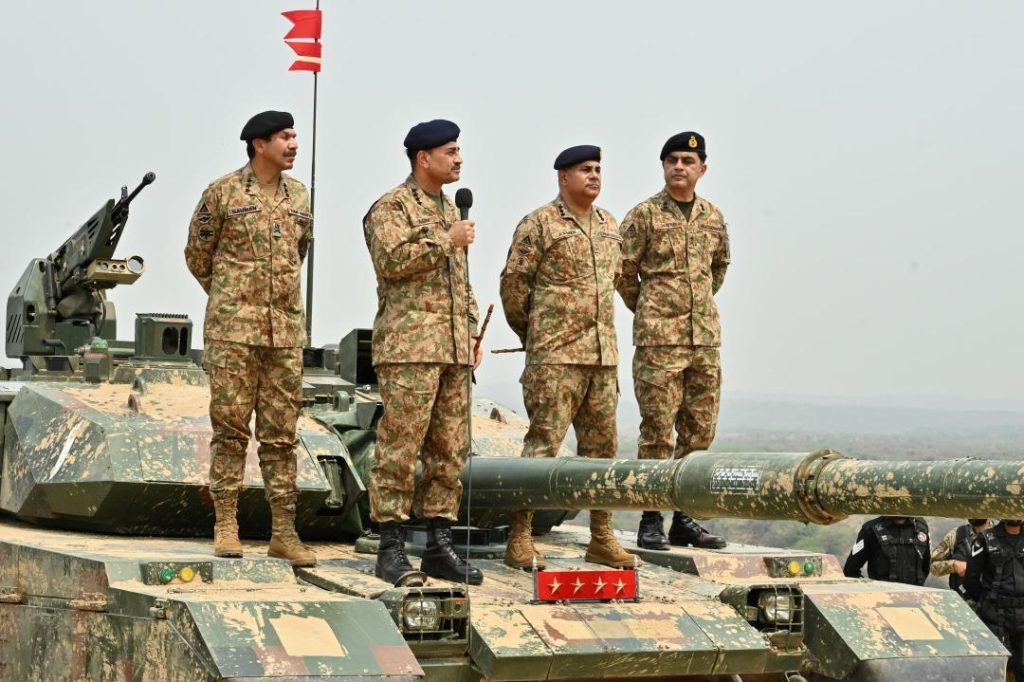
Asim Munir is Osama Bin Laden in a suit: Former US official
In a shocking statement, a former Pentagon official has likened Pakistan’s army chief, Asim Munir, to Osama Bin Laden, the infamous founder of al-Qaeda. Michael Rubin, a renowned expert on the Middle East and South Asia, made this remark while discussing the tense situation between the United States and Pakistan.
Rubin’s comment came in response to a recent nuclear threat made by Munir, who threatened to take half the world down with Pakistan if the US continued to meddle in its internal affairs. This alarming statement has raised concerns among international leaders and experts, who fear that the situation could escalate into a global conflict.
In an interview, Rubin described Munir as “Osama bin Laden in a suit,” stating that the Pakistan army chief’s actions and rhetoric are reminiscent of the terrorist leader’s ideology. This comparison is significant, as Osama Bin Laden was responsible for some of the most devastating terrorist attacks in modern history, including the 9/11 attacks on the United States.
Rubin’s comment is not the only criticism leveled against Munir. The US president, Donald Trump, has also been criticized for his handling of the situation. Rubin, who has worked closely with Trump, described the businessman-turned-politician as someone who is used to horse-trading. According to Rubin, Trump’s lack of understanding of international diplomacy and his tendency to prioritize short-term gains over long-term stability are major concerns.
“He [Trump] doesn’t understand that a bad peace deal can advance war,” Rubin said, emphasizing the need for a more nuanced approach to international relations. Trump’s critics have long argued that his administration’s handling of foreign policy has been reckless and unpredictable, with some experts warning that his actions could lead to catastrophic consequences.
The current situation between the US and Pakistan is a complex one, involving a range of issues from terrorism to nuclear proliferation. Pakistan has long been accused of harboring terrorist groups, including the Taliban and al-Qaeda, and has been criticized for its lack of cooperation with the US in the fight against terrorism.
In recent years, tensions between the two countries have escalated, with the US imposing sanctions on Pakistan and withholding military aid. Pakistan, in turn, has threatened to take action against the US, including launching nuclear strikes.
Munir’s recent nuclear threat has raised concerns about the potential for a global conflict. Pakistan has a nuclear arsenal of over 150 weapons, and its military is considered to be one of the most powerful in the region. The US, meanwhile, has a significant military presence in the region, including nuclear-capable aircraft and naval vessels.
The situation is further complicated by the presence of China, which has significant economic and military interests in Pakistan. China has been a major backer of Pakistan, providing it with significant economic aid and military assistance. This has raised concerns among US officials, who worry that China’s influence in the region could undermine US interests.
In conclusion, the situation between the US and Pakistan is a complex and volatile one, involving a range of issues from terrorism to nuclear proliferation. The recent nuclear threat made by Pakistan’s army chief, Asim Munir, has raised concerns about the potential for a global conflict.
Michael Rubin’s comment likening Munir to Osama Bin Laden is a stark reminder of the dangers of unchecked military power and the need for a more nuanced approach to international relations. As the situation continues to unfold, it is essential that world leaders work together to find a peaceful resolution to the crisis.



